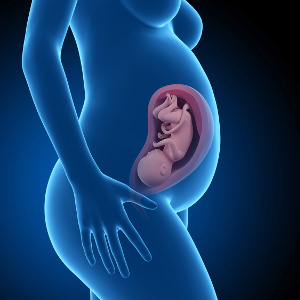Pregnant women’s lack of multiple nutrients harms the development of the baby
 Refined foods and plant-based diets lack vital nutrients that are highly important for a pregnant woman and the development of her unborn child’s body and brain. This was shown in a large study of mothers from high-income countries, where 90 percent of the participants lacked key nutrients such as vitamin B2, vitamin B6, folic acid, vitamin B12, and vitamin D. These widespread deficiencies have huge health consequences, which may be irreversible for the child. The scientists explain that the problem is made worse by the global push for eating more plant-based diets. Lack of omega-3 fatty acids that are primarily found in oily fish is also common and may harm the development of the child’s brain and increase the risk of postnatal depression in the mother.
Refined foods and plant-based diets lack vital nutrients that are highly important for a pregnant woman and the development of her unborn child’s body and brain. This was shown in a large study of mothers from high-income countries, where 90 percent of the participants lacked key nutrients such as vitamin B2, vitamin B6, folic acid, vitamin B12, and vitamin D. These widespread deficiencies have huge health consequences, which may be irreversible for the child. The scientists explain that the problem is made worse by the global push for eating more plant-based diets. Lack of omega-3 fatty acids that are primarily found in oily fish is also common and may harm the development of the child’s brain and increase the risk of postnatal depression in the mother.
A study of women in high-income parts of the world like Great Britain, New Zealand, and Singapore has found that 90 percent of the participants lacked key nutrients that are crucial for a healthy pregnancy and normal development of the child. Scientists from University of Southampton in collaboration with other researchers have studied more than 1,700 women aged 18-38 years before, during, and after their pregnancy. Many of the participants were also followed during subsequent pregnancies. The scientists found that most pregnant women had marginal or low levels of nutrients such as vitamin B2, folic acid (vitamin B9), vitamin B12, and vitamin D in the beginning of their pregnancy, and many developed a vitamin B6 deficiency later in their pregnancy. These vitamins are primarily found in meat, oily fish, eggs, and dairy products, and the sun during the summer period is a vital source of vitamin D. The study is published in PLoS Medicine and is the first to show that multivitamin supplementation of pregnant women may help reduce deficiencies during pregnancy and breastfeeding.
Plant food fad may exacerbate nutrient shortages
The study’s main author, Keith Godfrey, a professor of epidemiology at the University of Southampton, is quoted in ScienceDaily as saying that the widespread vitamin deficiencies among women in high-income countries has turned into a grave health problem. He adds that the current push for lowering the intake of meat and dairy products to reduce the carbon footprint may have harmful long-term effects on the unborn child.
The study revealed that nearly one in nine women planning to become pregnant had insufficient levels of one or several vitamins. This tendency becomes worse as a result of the trend toward plant-based diets. Many people also have the faulty notion that nutrient deficiencies are only a problem in low-income countries, yet it actually also affects most people in high-income countries.
It is also worth noting that modern farming methods and our refined diets contribute to the widespread nutrient deficiencies.
Pregnant women are normally advised to take a folic acid supplement to prevent neural tube defects in the baby. Now, scientists also recommend multivitamin supplementation to prevent deficiencies of other nutrients. It is good if these supplements also include selenium and zinc that are essential for healthy pregnancy outcome and the child’s development.
Omega-3 for the baby’s brain and for the mother’s mood
Oily fish and fish oil supplements contain the two omega-3 fatty acids, EPA and DHA, that are important for the development of the baby’s brain and nervous system. The expecting mother can easily become deficient in omega-3 during the late stage of her pregnancy, when the baby’s brain grows rapidly. An insufficient omega-3 fatty acid intake can also increase the mother’s risk of postnatal depression, according to a large, Danish population study that is published in the American Journal of Clinical Nutrition.
If a pregnant woman decides to take a fish oil supplement, it is vital for her to choose a high-quality product.
Referencer:
Keith M. Godfrey et al. Maternal B-vitamin and vitamin D status before, during and after pregnancy and the influence of supplementation preconception and during pregnancy. Prespecified secondary analysis of the NiPPeR-double-blind randomized trial. PLoS Medicine 2023.
University of Southampton. Pregnant women are missing vital nutrients for them and their babies. ScienceDaily 2023
Jiaomei Yang et al. Maternal Zinc, Copper, Selenium Intakes during Pregnancy and Congenital Heart Defects. Nutrients 2022
Springer. Fish-rich diets in pregnancy may boost babies´ brain development. ScienceDaily September 20, 2018
Marin Strøm et al. Fish and-long-chain n-3 polysaturated fatty acid intakes during pregnancy and risk of postpartum depression: a prospective study based on a large national birth cohort. The American Journal of Clinical Nutrition. 2009
TIP! See also the related articles
Search for more information...
- Created on .








